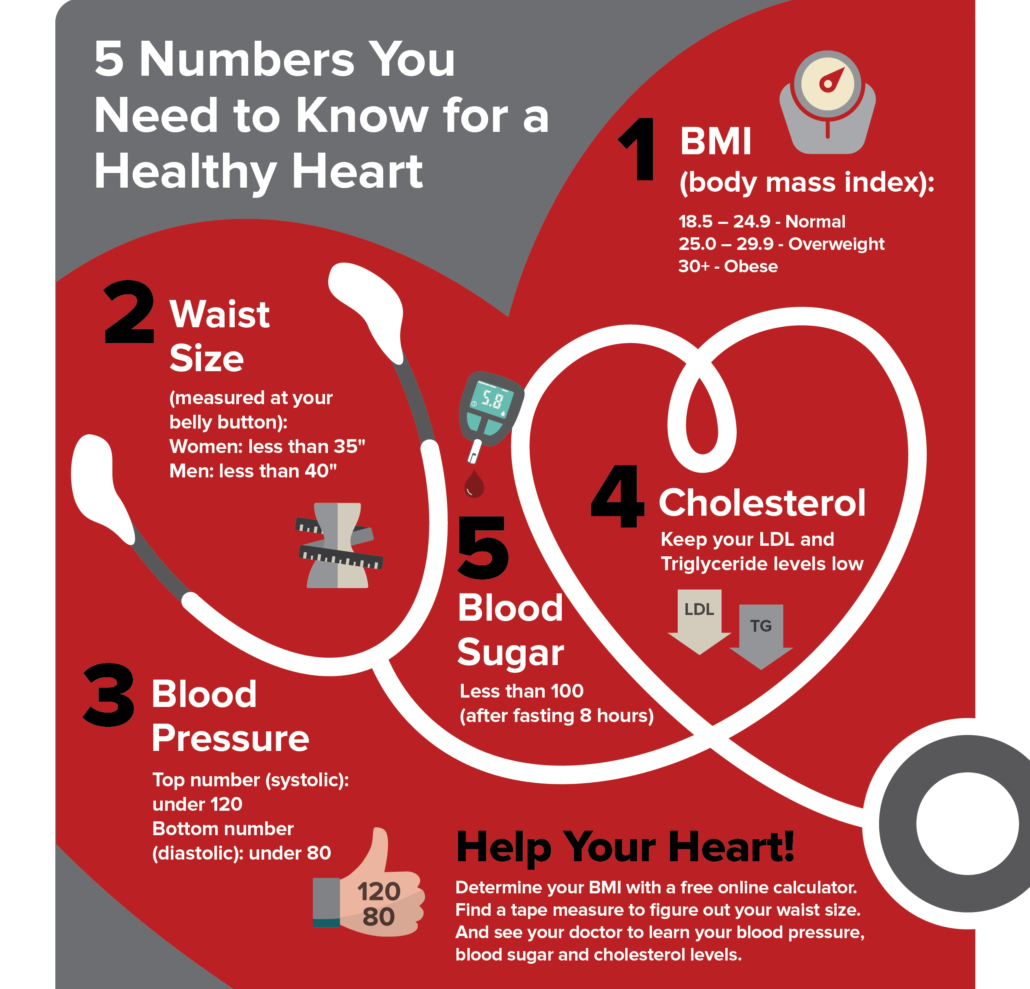Be a Heart-Health Role Model
Sharing is caring, but not when it comes to serious health conditions like diabetes or heart disease. These health conditions, like many others, can run in families. But there’s a lot you can do to help protect yourself and your family. Learn tips on how to be a heart-health role model for your family.
Heart disease is one of the most common complications of diabetes. And the longer you have diabetes, the more likely you are to develop heart disease. Recent studies show that people are developing type 2 diabetes at a much younger age, which means they will be affected by diabetes over a longer time and are at risk of developing diabetes complications like heart disease sooner.
If you have diabetes, you know how important healthy habits are to helping you manage the condition and prevent or delay complications like heart disease. And it’s not practical to have a different lifestyle than the rest of your family. So, what’s the key to being a heart-healthy role model? Getting your family involved! By showing your family how you’re taking steps to a healthy lifestyle, you’ll be a role model they can follow. Here are a few tips on how to be a heart-health role model for your family.
Share Your Family Health History
Like diabetes, heart disease can run in families. Having a family member with diabetes or heart disease increases your risk and the risk for others in your family. Talking about your family’s health history doesn’t only have to be a serious sit-down conversation. You can use family gatherings, mealtimes, or even coffee chats as a time to talk about your health history. You’ll want to:
- Ask questions. Asking your relatives about which health conditions they have had and when they were diagnosed can help you find out about your risk.
- Record and update information. Write down the information you collect and remember to update it as you learn more.
- Share with other family members. Sharing your family’s health history will benefit all members of your family, and it’s especially important to share this information with your younger relatives so that they can take steps now to prevent or delay heart disease.
Gathering family health history is just the first step. The next step is to act on it. Share the information at medical appointments so your doctor can decide which screening tests you need and when you’ll need them. Identifying and treating diabetes, heart disease, and other chronic conditions early can often mean better health in the long run. By starting the conversation and sharing your family’s health history, everyone can take steps to lower their risk.
Get Moving With Your Family
Of course you can’t change your genes, but there are lifestyle changes you and your family can make to lower the risk of heart disease. Being active with your family is a great way to lead by example. If the kids in your family see you enjoying physical activity, they’ll be more likely to give it a try.
Ask the people in your family what they like to do to be active, and build your family physical activities around those. Here are a few fun ways to get started.
- Go for a walk. You don’t have to do intense workouts to reap the benefits of physical activity. Walking is a great way to get exercise and spend time with your family.
- Try hula hooping. Did you know hula hooping is excellent exercise? It’s a lot of fun and it’s great for the whole family, even grandma and grandpa.
- Go for a bike ride. If you have knee or hip problems, bike riding is a great non-impact exercise. Kids love riding bikes too! Don’t forget to wear a helmet.
- Dance. Turn family time into dance time. Dancing is a great way to burn calories and get your heart pumping. Whether it’s just two to tango or a family group for your dance troupe, you’ll be dancing your way toward a healthier you.
Share Family Meals
Work, school, and other life responsibilities can make it hard to come together for mealtimes, but there are real benefits to sharing meals with loved ones. Sharing family meals is not only a great opportunity to pass on healthy eating habits, it’s also been shown to decrease family stress and help kids do better in school. Teaching the younger ones in your family the importance of eating together may encourage them to pass this value on to their kids later. Here are some tips for planning family meals:
- Keep it simple. Mealtime doesn’t have to be an elaborate event. Keep recipes simple and enjoyable for the whole family.
- Get the family involved. Let kids help with planning meals, creating shopping lists, cooking, setting the table, and cleaning up.
- Make mealtime screen-free. Make it a rule that phones and devices should be off or on mute and out of reach. This allows everyone to actively listen and be involved in the conversation.
At the Heart of It All
Being a heart-healthy role model involves knowing your risk, making healthy lifestyle choices, and taking steps to reduce the chance of getting heart disease. Managing diabetes is challenging even without having to manage a diabetes complication like heart disease. The good news is that you can do a lot to stay healthy and protect your heart—and the hearts of those you love.

